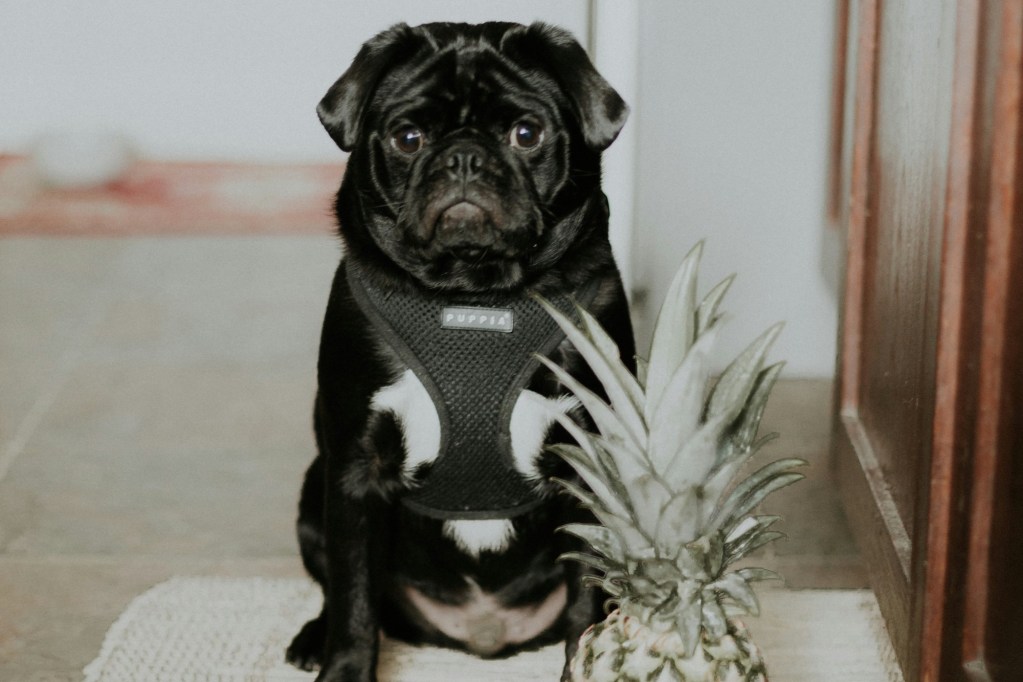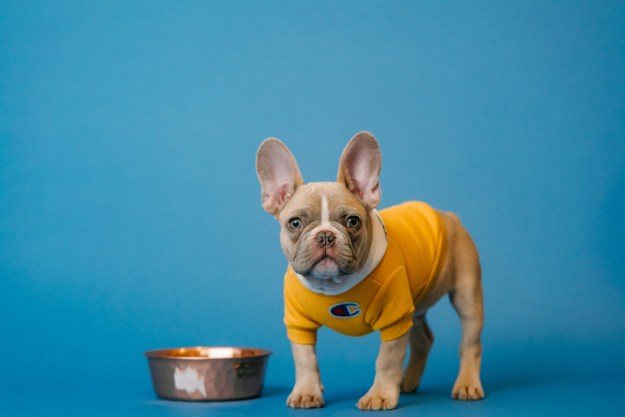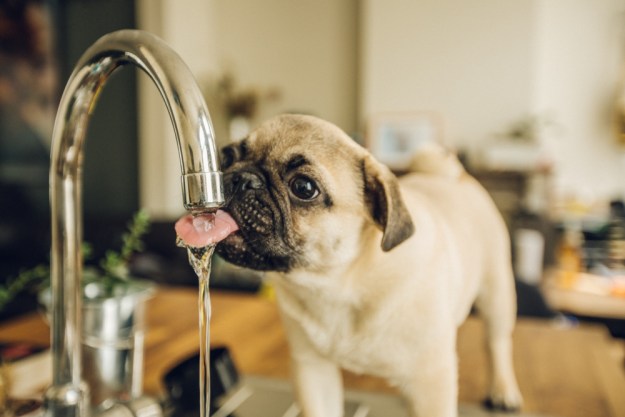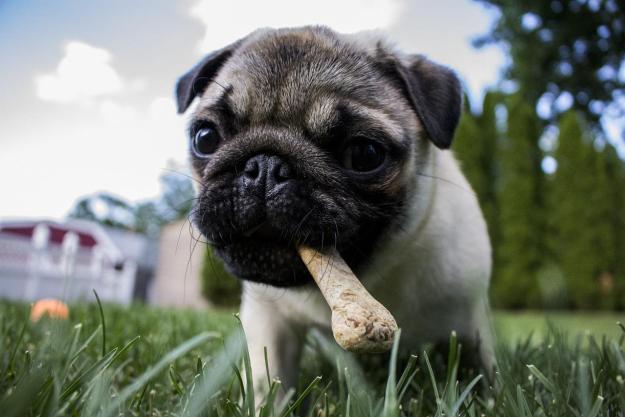
Whether you’re indulging in a summertime treat or creating the ultimate tropical fruit salad, pineapple is never a bad idea. Its tangy, refreshing taste complements many other flavors, and you can prepare it in a number of different ways. But while you’re chopping up your pineapple, there’s a good chance your food-motivated dog isn’t far away. After all, they may be hoping you’re cooking them a chicken dinner!
Before you toss your pup a piece of delicious pineapple, it’s only natural to wonder whether dogs can have this fruit to begin with. A few fruits are downright dangerous for dogs, including grapes, avocados, and pitted fruits, but can dogs have pineapple? Let’s find out.
Can dogs have pineapple?

You’ll be glad to know that dogs can have fresh pineapple in small quantities. Actually, there are many benefits to feeding furry friends this tropical fruit. Not only is it a delicious alternative for a dog treat, but it also contains several essential vitamins and minerals. Vitamin C, B-complex vitamins, potassium, iron, zinc, and magnesium can all be found in this summertime treat. As the canine experts at the AKC note, pineapple’s nutrients are important for a healthy digestive system and immune system.
However, not all pineapples get the green light for your dog’s consumption. It’s important to know that only fresh pineapple should be fed to dogs — not any pineapple cocktail or canned fruit. Prepared produce often contains lots of sugar, which is not healthy for any pet to eat. In fact, fresh pineapple contains sugar, too, which is one reason why it should only be a treat for dogs in moderation. Additionally, pineapple’s high fiber content can upset some dogs’ stomachs, while its acidity can wear down tooth enamel if consumed in large amounts.
How to prepare pineapple for dogs

When sharing a few bites of fresh pineapple with your pup, there are some more precautions to keep in mind. For example, make sure not to feed your dog either the spiny outer layer or the tough solid core of the fruit. Eating these pieces runs the risk of causing an intestinal blockage, so be sure to let your dog’s vet know if they do happen to steal the core, spines, or skin. You may have to bring them in for an exam, or your vet may advise you to wait and see.
Speaking of veterinarians, it’s also a good idea to check in with your dog’s doctor before any major diet changes. Because pineapple is high in sugar, it may not be recommended for dogs at risk of diabetes. Even if your dog gets the A-OK to eat pineapple, it’s best to start with a single bite-sized piece just to see how their stomach reacts. If they do well, you can try two pieces next time.
Just like when sharing any human food with your dog, make sure to cut pineapple into small enough pieces. This juicy treat could get messy, though, so finding a snacking spot that’s easy to clean is simply a bonus. Happy snacking!
Editors' Recommendations
- Can dogs eat cashews? Only if you follow these rules
- 5 reasons you really need to get a dog car seat
- Can dogs see in the dark? Your guide to your dog’s vision
- Why do dogs have wet noses? They’re actually really important
- Why do dogs hump everything? You might be surprised




